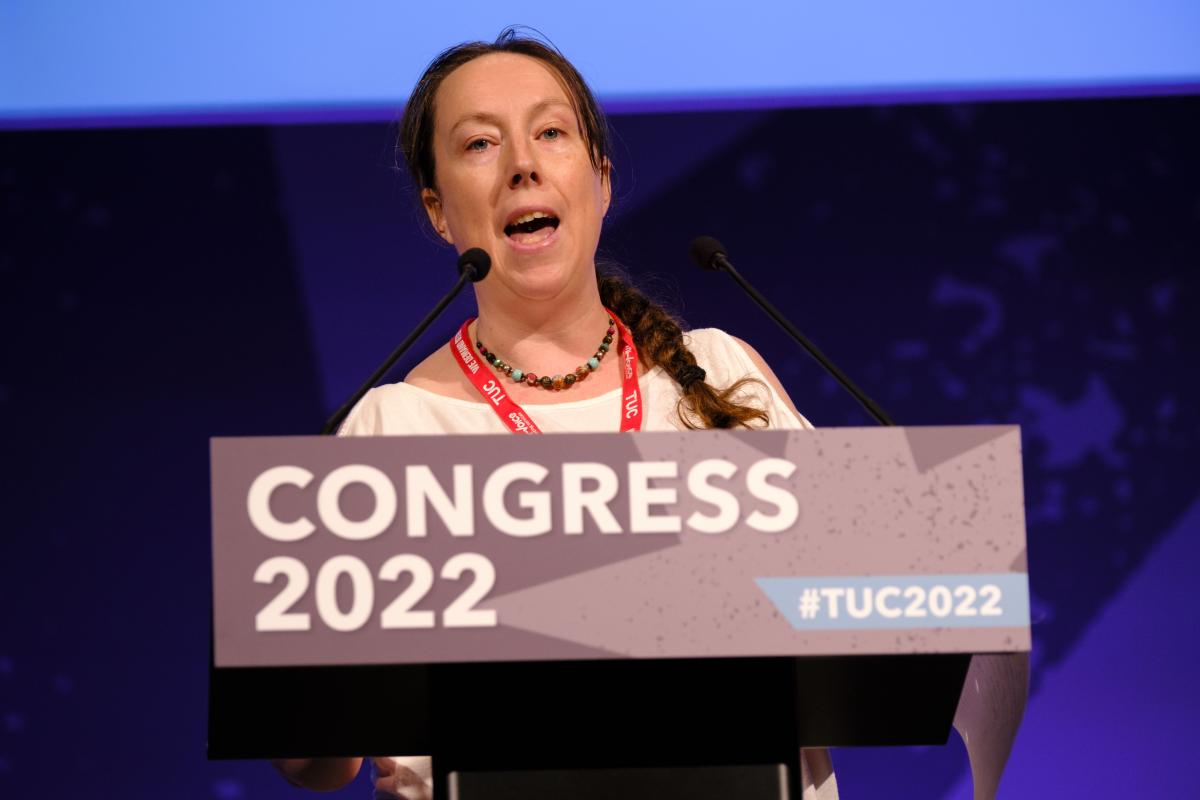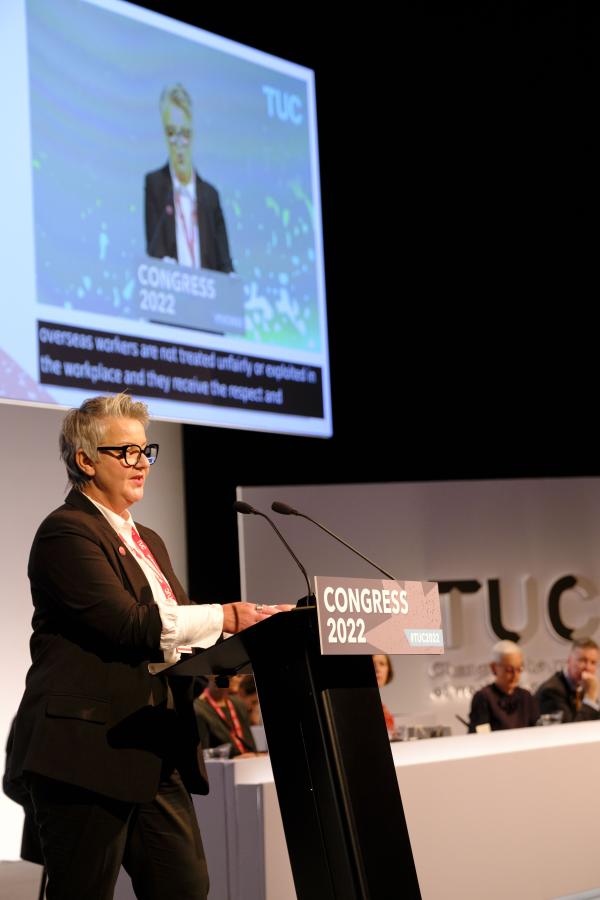The CSP kicked off its contribution to Trades Union Congress’ three-day annual policy making conference, highlighting the huge challenges facing NHS staff and the urgency of widening access to rehab to patients.

Health inequalities
Speaking to delegates assembled in Brighton, first time delegate – and CSP steward – Helen Lewes called for a trade union campaign to deliver a government strategy and action on health inequalities.
Helen drew attention to poor and inequitable access to rehabilitation service, arguing:
'Policy makers must take urgent action to deliver a universal comprehensive rehabilitation offer to everyone who needs it'.
Recruitment and retention – a crisis to the NHS

However, the above is easier said than done when the National Health Service – which would be a core component of this offer, along with public health services provided by local authorities – is under threat like never before.
Claire Sullivan, CSP director of employment relations and union services, described how NHS staff 'rose like lions' to protect others through the ongoing Covid-19 pandemic – only to see the health service threatened by a government-created recruitment and retention crisis, eyed on hungrily by 'intellectually and morally lazy privatisers [who] will say that the NHS model is broken'.
Claire asserted that the solution to health service collapse 'is simple - it needs to be properly funded and it needs to be able to attract and keep its people'.
This will only be achieved by trade union members taking action, particularly around low pay. Indeed, Claire had to pause for applause when informing Congress that:
Pushed to the brink… the CSP, along with at least seven other health unions, is now balloting across England, Scotland and Wales for strike action on pay for the first time in its almost 130-year history
This announcement echoed many heard across the day. Union delegates across a whole range of sectors argued for coordinated action by workers to pressure government and employers to respond to the cost of living crisis and wider issues hurting workers, such as the climate change.
Organising our most vulnerable workers

Delegates highlighted how some people are disproportionately impacted by these issues – and Claire pledged on behalf of the CSP that we would take forward the actions outlined in the TUC’s newly launched Anti-Racism manifesto.
This landmark publication commits unions to a 5-year programme which will see trade unions organise around racial justice issues and identify and tackle institutional racism in our own institutions.
The CSP’s delegation closed its first day at TUC conference drawing attention to the exploitation of overseas workers – made vulnerable by a hostile environment created by the State and employers.
Senior negotiating officer Helen Purcell outlined how trade unions 'need to hold all employers to account...[and] recruit and organise vulnerable overseas workers' into the movement.
Coming up
All three motions were passed and will now form the TUC’s policy agenda for coming year.
TUC Congress continues on Wednesday 19 through to Thursday 20, and the CSP will speak on further issues including flexible working and reasonable adjustments.
Find out more:
- Read the motions the CSP’s delegation is moved and seconded at Congress 22.
- See what our delegates got up to in the second half of Congress
- CSP welcomes TUC Anti-Racism Manifesto - report
- Interested in joining in with the trade union movement’s democratic policy making? Speak to national officer Siân Caulfield for an informal chat about joining at a future Congress or equality conference.
Number of subscribers: 2